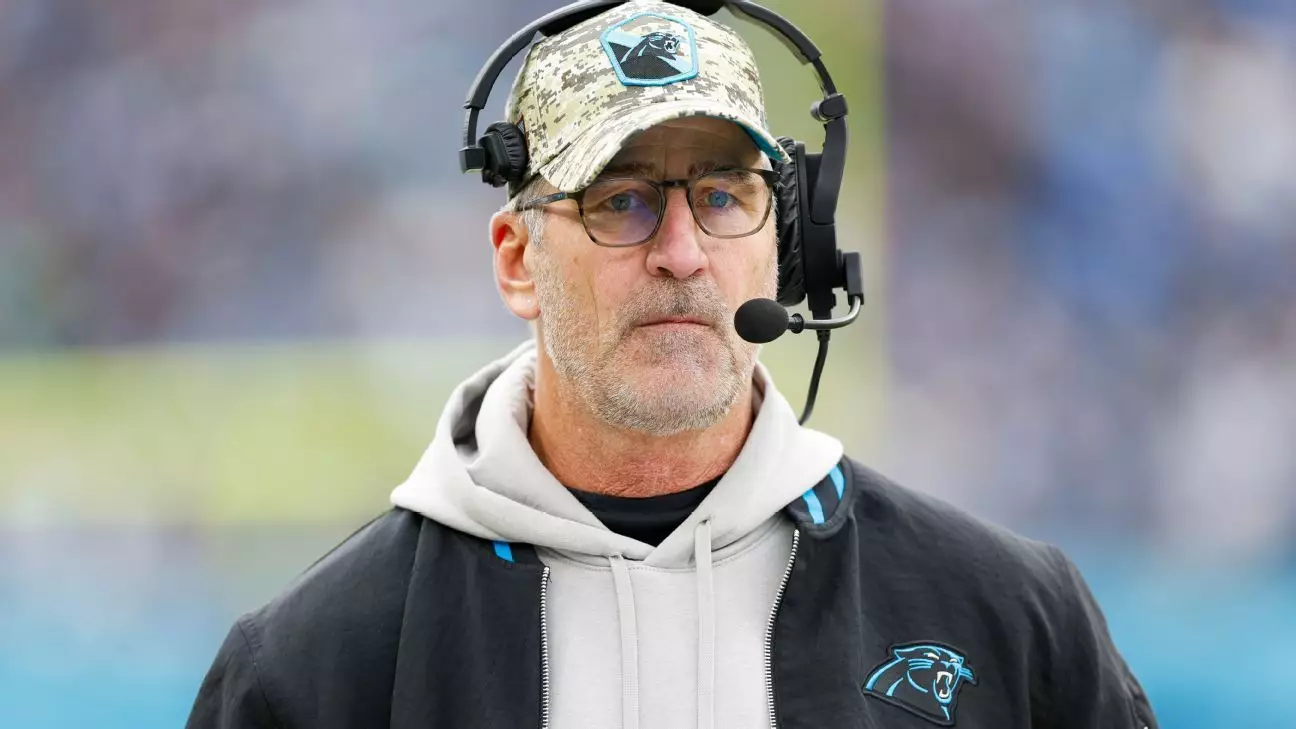In a bold yet contentious move, Stanford University has appointed former NFL head coach Frank Reich as the interim coach for its struggling football program for the 2025 season. This decision, announced recently, follows the firing of Troy Taylor amid shocking allegations of bullying and inappropriate behavior, which have cast a long shadow over the program. The urgency to rectify Stanford’s dismal football fortunes, exemplified by four consecutive losing seasons, may have driven this hiring, but it raises significant concerns about the direction and judgement of the university’s athletic department.
Reich, with a rather troubling track record after his dismissals from two NFL teams in two consecutive years, brings with him a wealth of experience at both the professional and collegiate levels. However, questions linger. Will a football coach, whose last NFL job ended in disgrace, be the catalyst for positive change at a university known more for its academic rigor than its athletic achievements? The weight of responsibility is daunting.
Culture Crisis within the Coaching Staff
The decision to part ways with Taylor is indicative of a deeper culture crisis at Stanford, one that reeks of a severe disconnect between the athletic department and its commitments to upholding a respectful environment. Taylor’s actions, as found by independent investigations, were not just reckless; they signaled a toxic atmosphere that undermined the morale and dignity of the staff. For Stanford’s decision-makers, the focus should not solely be on reviving wins but on cultivating a culture of respect and integrity.
With Reich now at the helm, the stakes are high, but the question remains: can he transform an entrenched culture of inadequacy and disrespect? His ability to mentor young athletes and instill values won’t just be scrutinized on the scoreboard but in the very ethos he promotes.
Luck’s Ambitious Vision or Reckless Gamble?
Andrew Luck, the team’s general manager and former standout quarterback, is credited with handpicking Reich for this role. While Luck’s enthusiasm for his mentor is palpable, one has to wonder if this enthusiasm might blind him to the strategic risks involved. Bringing in a coach with a visibly shaky recent history raises significant red flags. Superficially, this partnership could be framed as a strategic reunion, but the implications run much deeper.
Luck touts Reich as a “teacher, a winner, and a coach of the highest caliber,” which, while commendable, fails to account for the pragmatic realities both men will face at Stanford. Winning isn’t just about putting points on the board; it encapsulates nurturing young men through their academic and athletic journeys. Reich’s past NFL achievements do not directly translate to the collegiate ranks, where the challenges are vastly different and often more complex.
Rekindling a Fading Legacy
Stanford football hasn’t seen a winning season since 2020, and the emptiness of the program’s promise has left a bitter taste in the mouths of players and fans alike. In recruiting terms, this signing might signal stability, but how do we reconcile that with the undeniable reality that both Reich and Luck have significant overturns in their latest ventures? The notion that a one-season stint could adequately reset a program in turmoil flirts dangerously with naïveté.
Moreover, the backdrop of David Bailey’s entry into the NCAA transfer portal illustrates the precariousness of the current situation. High-caliber players are taking a step back, seeking greener pastures rather than risking their futures in a sinking ship. This speaks volumes about the current morale within the team and represents a broader crisis within the college football landscape.
Expectations vs. Reality
As Stanford begins its search for a permanent head coach, the legacy of this interim decision will hover ominously over the upcoming season. Will Reich’s appointment pave the way for a robust revival, or will it reveal Stanford’s vulnerability to stagnation? Despite a façade of optimism, the ordeal raises critical questions regarding Stanford’s underlying values and its commitment to exceptionalism in everything it undertakes.
How this plays out will undoubtedly influence not only the program’s immediate future but also its standing in the world of collegiate athletics. As fans and stakeholders anticipate the forthcoming season, the interplay of hope and skepticism will be palpable. The looming specter of failure, compounded by the previous missteps, should serve as a constant reminder that the path toward revival is not just one of strategy, but of sincerity, accountability, and genuine respect for the individuals involved.


Leave a Reply